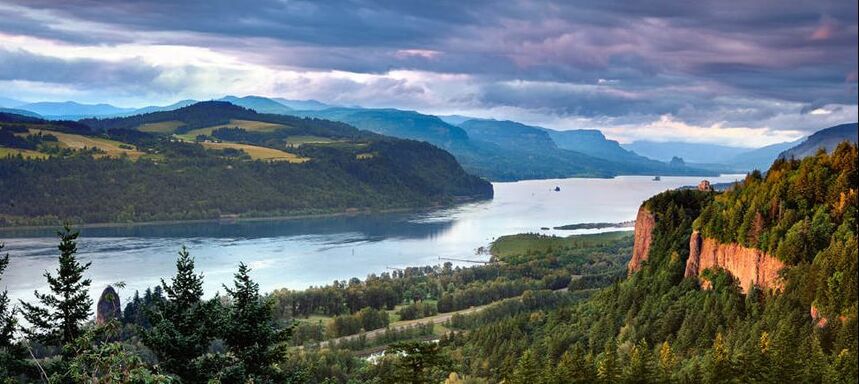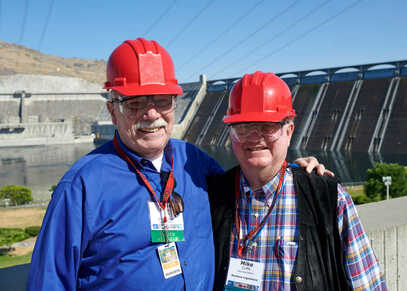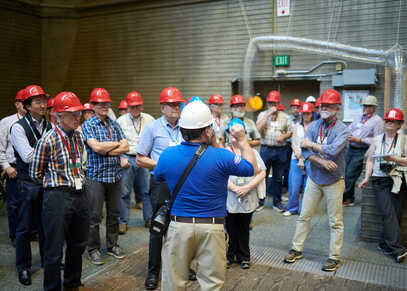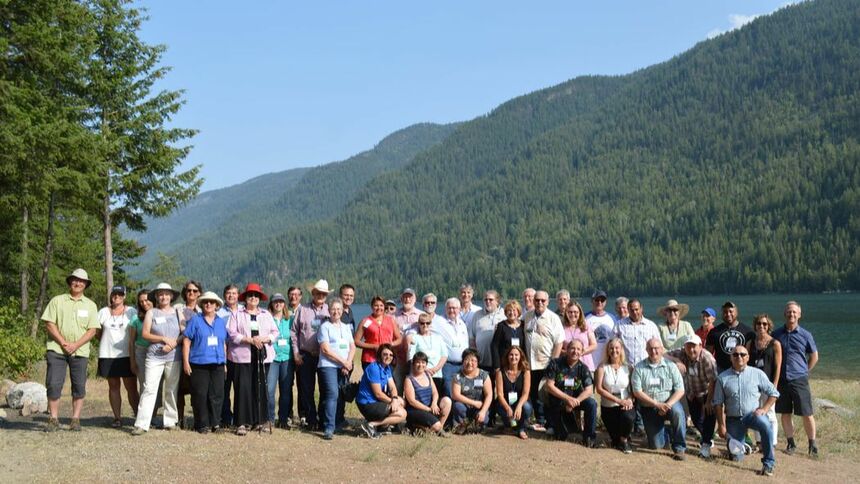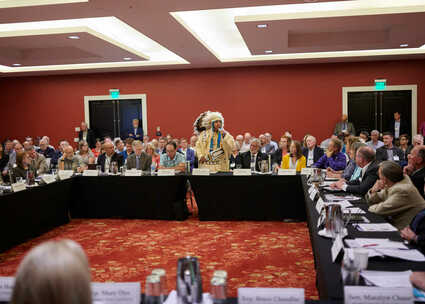 JoDe Goudy, Chairman of the Yakama Nation Tribal Council, speaking during the CRT Symposium in Spokane, WA JoDe Goudy, Chairman of the Yakama Nation Tribal Council, speaking during the CRT Symposium in Spokane, WA Today marks the opening of the fifth round of negotiations between the U.S. and Canada on the Columbia River Treaty (CRT) since talks to modernize the Columbia River Treaty regime began in May 2018. PNWER has taken a keen interest in the Columbia River Treaty negotiations and is looking forward to seeing the Treaty modernized for the mutual benefit of the region. In fact, PNWER has been working with partner jurisdictions over several years to underscore the importance of the CRT. In 2004, the PNWER Executive Committee affirmed the Columbia River Treaty as one of the most important issues for the region. Since then, much has been done in the region to provide input to the U.S. and Canadian entities leading up to the renegotiation of the treaty. This past year marked a major effort by PNWER to bring stakeholders and experts together to learn more about the treaty, the negotiations, and the impact on the region. This past July, PNWER organized a Symposium which was held at the PNWER Annual Summit in Spokane, WA. This Symposium was the first joint session to include stakeholders from both sides of the border as well as the chief negotiators from the U.S. and Canada. The Symposium provided the chief negotiators the opportunity to present together and hear testimony from stakeholders. Stakeholders shared the benefits and impacts of the Treaty, focusing on areas including ecosystems, tribal groups, utilities, tourism, agriculture, recreation, and more. The Symposium also featured legislators of jurisdictions that are in and surrounding the Columbia River Basin who spoke about effects of the CRT on livelihoods in the region. Watch TVW's coverage of the CRT Symposium HERE. Following the Symposium, PNWER and its partners organized two policy tours highlighting aspects of the Columbia River Basin to legislators, policymakers, and stakeholders. The first tour to the Grand Coulee Dam in central Washington showcased hydroelectric power and water storage for irrigation projects in the U.S. and Canada. Participants heard from several experts including a speaker from the Bonneville Power Administration who illustrated the delivery of power throughout the region. The Chelan County Public Utility District Leadership spoke about operations and the important role the Grand Coulee Dam has in power generation. Tour attendees also heard about the importance of water storage for irrigation to the region’s agricultural community. The following day, attendees were invited to a two-day study tour of southeast B.C. During the two-day tour, fifty attendees visited the Hugh Keenleyside Dam as well as the Spicer farm in Nakusp, which is one of the farms inundated when the treaty dams were built. Columbia River Basin residents and local experts were present during the two days to share their knowledge of how the treaty affects the region’s ecosystems, agriculture, tourism, and community. The U.S. Chief Negotiator for the Columbia River Treaty, Jill Smail, will lead a town hall in Kalispell, Montana on March 20. The town hall will provide an opportunity for the public to hear about the status of the negotiations as well as to ask questions. For more details on the town hall, visit the U.S. Department of State's website.
For more information on the Columbia River Treaty, its history, and impact, visit the links below. Government of British Columbia: https://engage.gov.bc.ca/columbiarivertreaty/ https://engage.gov.bc.ca/columbiarivertreaty/2018-community-meetings/ February 2019 Columbia River Treaty Newsletter U.S. Department of State: https://www.state.gov/p/wha/ci/ca/topics/c78892.htm https://www.federalregister.gov/documents/2019/02/27/2019-03353/town-hall-meeting-on-modernizing-the-columbia-river-treaty-regime Comments are closed.
|
Archives
August 2023
Topics
All
|
|
World Trade Center West
2200 Alaskan Way, Suite 460 Seattle, WA 98121 |
|

